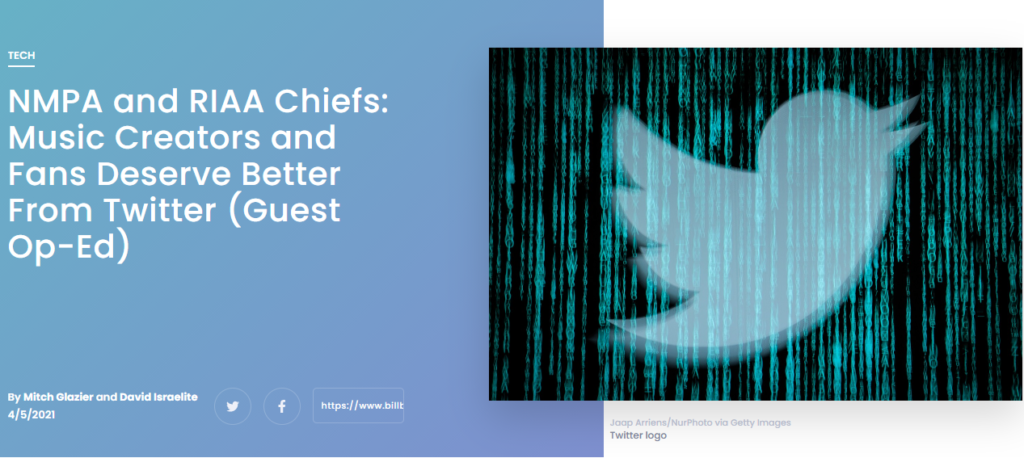Media
NMPA and RIAA Chiefs: Music Creators and Fans Deserve Better From Twitter (Guest Op-Ed) | Billboard

"Last year music creators sent more than 2 million notices to Twitter of unlicensed and infringing appearances of copyrighted music on the platform."
Twitter is always thinking of new ways to communicate and connect. The most recent example came just last month when its CEO Jack Dorsey testified before Congress and probably was the first witness ever to share his opening statement as a 19-entry thread.
But in one important respect Twitter remains "old school" and stubbornly refuses to use even the most basic tools when it comes to combating piracy or helping music creators prevent theft of their works on its platform. Unfortunately, the company’s efforts to innovate only seem to go so far.
Twitter may not have started out as a company that leverages and relies on music, but it’s definitely grown into one. Today, the platform aggressively uses music to draw in users and promotes itself as a place where fans can connect directly and immediately with the stars they love. After Barack Obama, the next three most-followed accounts on Twitter are all recording artists and songwriters. Stars like Bruno Mars, Taylor Swift, Dionne Warwick, Arianna Grande, Lady Gaga, and Rihanna are among the most followed and engaged with on the platform.
Record companies and music publishers want this partnership to work and are proud to help power Twitter’s success. We recognize artists and songwriters benefit greatly from being able to talk to their fans, share their work, and generate excitement and interest in great music in this way.
However, the viral immediacy and global reach of the Twitter platform presents a double-edged sword – one that cuts especially deep for artists, songwriters, and music rightsholders who see their work leaked, copied, distributed, and monetized on the platform with almost no recourse.
Last year music creators sent more than 2 million notices to Twitter of unlicensed and infringing appearances of copyrighted music on the platform – more than 200,000 of which dealt with the especially harmful presence of not yet released stolen songs.
The company’s response to date has been totally inadequate. In many cases it takes days or longer to even get a response – which is unacceptable in any case, but especially insufficient in the case of pre-release leaks that steal an artist’s one chance to introduce the world to their music when and how they choose. With pre-release leaks, takedowns must come in seconds or minutes, not days.
While Twitter’s response to takedown notices fails to meet its legal obligations, even worse is the company’s refusal to take affirmative steps to more effectively police its own platform and find unlicensed music before it is widely circulated and without waiting for a rightsholder to do the work and notice the infringement for them. No one can see better than Twitter what happens on its system or has the access and technical capacity to address problems at the speed and scale of the network.
There is much Twitter could do to address this problem:
License Music & Pay Music Creators Like Others Do. Most fundamentally, it could license music and pay creators for the songs and recordings that it distributes. This is what many other services have done and it is the single most important thing the company could do to meet its obligations to artists and songwriters.
Better Content Protection Tools. It could introduce more effective automated tools and content protection technologies to find and take down unlicensed copies of works even before they are published on the system and without forcing artists, songwriters, and their representatives to scour the five hundred million tweets that are posted to the platform every day.
Stop Demanding Exorbitant Payments From Creators for Content Protection. Twitter demands massive payments from music creators simply to access the company’s own data flow to be able to spot and flag the enormous amounts of unauthorized content on the platform. Twitter could easily provide an API with sufficient capacity and speed to allow for monitoring at scale, just as it provides to other users like researchers who it hopes will help publicize and vouch for the company’s operations and to third party vendors who sell Twitter analytics. Incredibly, despite many requests it has refused to provide it to music creators without charge. Charging music creators for access to the data they need to find infringement of their own work is just another Silicon Valley shakedown –moving fast and breaking music.
Music creators and fans deserve better. Mr. Dorsey’s tweeted testimony included a desire “to create better outcomes for everyone” who uses the service. We take him at his word – and look forward to serious and immediate changes in the company’s approach to unlicensed music on the platform.
David Israelite is the President & CEO of the National Music Publishers' Association (NMPA). The NMPA is the trade association representing American music publishers and their songwriting partners. Mitch Glazier is the Chairman and CEO of the Recording Industry Association of America (RIAA), the trade organization that supports and promotes the creative and financial vitality of the recorded major music companies.
Read on Billboard
